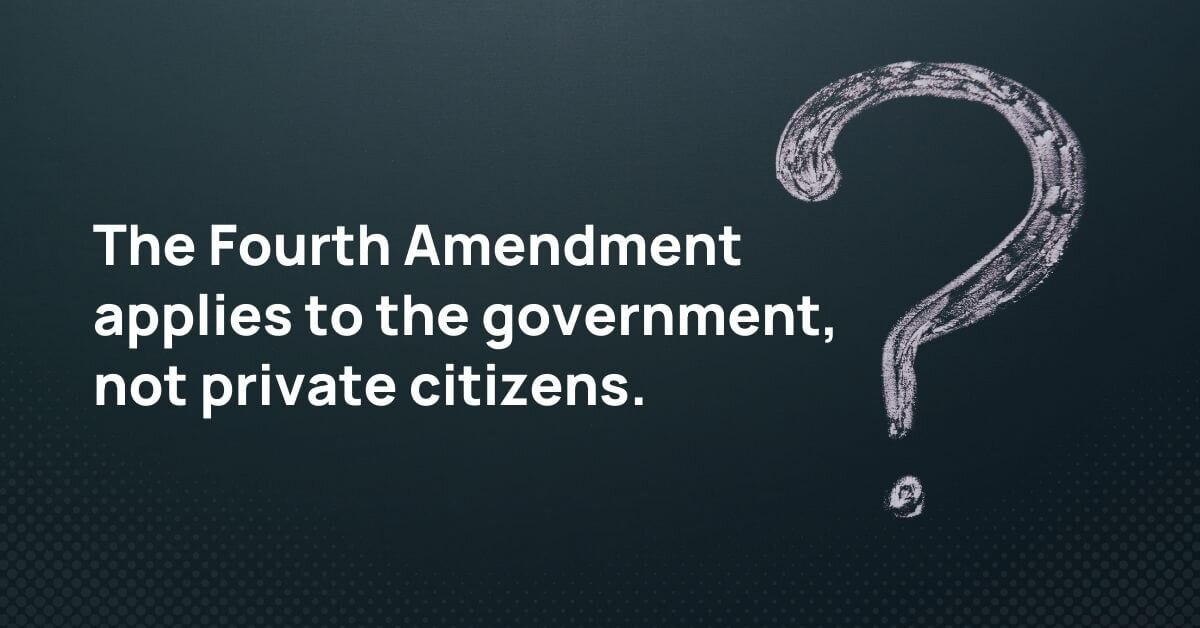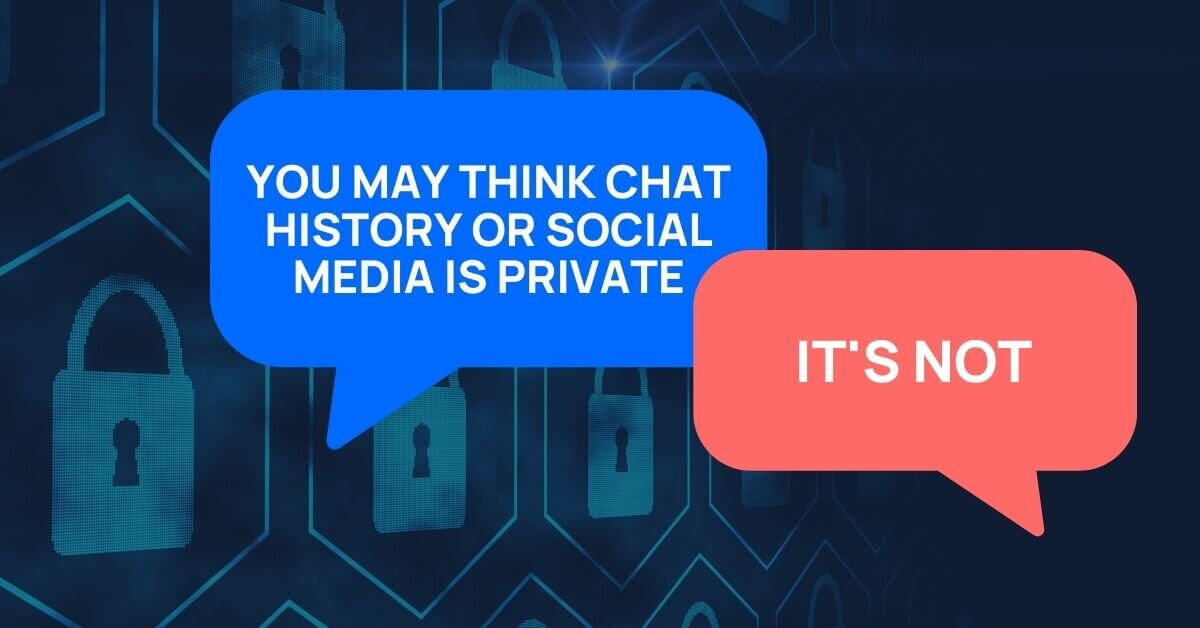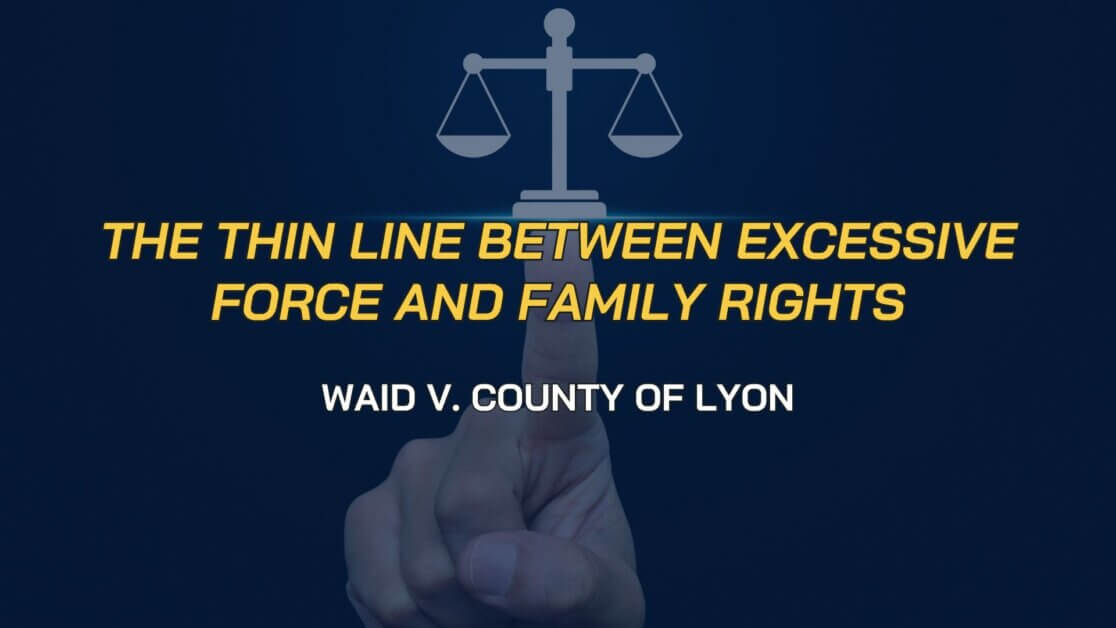Today’s case, United States v. Meals, 21 F.4th 903 (5th Cir. 2021), actually makes Facebook look like the good guys for a change. Before we jump into the facts of the case, let’s review our major legal component today, the private search doctrine. According to United States v. Jacobsen, under the private search doctrine, when a private actor finds evidence of criminal conduct after searching someone else’s person, house, papers, and effects without a warrant, the government can use the evidence, privacy expectations notwithstanding.
It is especially important to remember that the Fourth Amendment applies to the government, not private citizens. Consequently, under the private search doctrine if a non-government entity violates a person’s expectation of privacy, discovers evidence, and turns over the evidence to law enforcement, the evidence can be used to obtain warrants or prosecute.

There are two exceptions to the private search doctrine. First, if the “private actor” who conducted the search was acting as an agent of the government when the search was conducted, the private search doctrine does not apply. Second, if the government exceeds the scope of the private actor’s original search without a warrant and discovers new evidence, the private search doctrine does not apply to the new evidence, and the new evidence may be suppressed.
United States v. Meals Facts
Stephen Meals used a Facebook messaging application to discuss with A.A., a fifteen-year-old, their previous sexual encounters and their plans for future encounters. Facebook discovered these messages when an employee began to surveil, collect, and review Meals’s private messages with fifteen-year-old A.A., which indicated that Meals and A.A. were in an active sexual relationship. Facebook decided that the messages violated its terms of service, its community standards, and probably federal law. In November 2018, after a Facebook employee reviewed the messages, Facebook sent copies to the NCMEC via a “CyberTipline”.
NCMEC reviewed the messages provided by Facebook and then forwarded them to local law enforcement in Corpus Christi, Texas, where both Meals and A.A. lived. An investigator obtained a search warrant for the Facebook accounts of Meals and A.A., which revealed additional conversations confirming Meals’s sexual relationship with A.A. The investigator then obtained a second warrant based upon the additional evidence to search Meals’s electronic devices, home, and a trailer. The second search uncovered child pornography on Meals’s devices consisting primarily of images of A.A. that Meals apparently produced. The government subsequently charged Meals with several child pornography-related offenses.
Meals filed a motion to suppress the evidence discovered on his electronic devices. He argued that he had an expectation of privacy in his Facebook chats and that Facebook and NCMEC violated his Fourth Amendment rights as government agents when they searched his messages without a warrant. The district court denied the motion under the private search doctrine. Specifically, the district court held that the search did not violate Meals’s Fourth Amendment rights because Facebook was not the government nor acting as an agent for the government. In addition, even if NCMEC were a government agent, neither its conduct nor law enforcement’s review of Meals’s messages exceeded the scope of Facebook’s initial search. Meals appealed.
Fifth Circuit Opinion
In this case, the Fifth Circuit Court of Appeals held that Facebook was a “private actor” and not a government agent when it searched Meals’s messages. Even though 18 U.S.C.2258A(a) requires electronic communication service providers like Facebook to send a CyberTip to NCMEC for all instances of child exploitation that they discover on their platforms, it does not compel nor coercively encourage these providers to search actively for such evidence. Instead, the court recognized that 2258A(f) contains language indicating that service providers like Facebook are not required to monitor their customers or affirmatively search their accounts for evidence of child exploitation. Given this disclaimer, the court held that Facebook conducted a private search when it searched Meals’s messages.
Next, the court found that NCMEC is a private, nonprofit corporation, not a government entity. However, the court added that even if NCMEC was acting as a government agent, it did not exceed the scope of Facebook’s private search when it reviewed the same content initially reviewed by a Facebook employee and forwarded to NCMEC via the CyberTipline. Consequently, the court held that the district court correctly denied Meals’s motion to suppress.
Key Takeaways
Often when we discuss the Fourth Amendment, we are discussing search and seizure and it may seem like it has to do with the citizen that we are searching for, but in a weird way it does not. The Fourth Amendment applies to the government, not private citizens. So, if a private citizen is searching and turning over evidence against another private citizen, they are not protected under the Fourth Amendment. We have discussed this here before; although you may think that your chat history or social media feed is private it is not.

Private citizens run Facebook and their parent company Meta Platforms, Inc., not the government (as much as some conspiracy theorists may have you believe). So, if you get an anonymous “CyberTip” feel free to use it to obtain a warrant.



